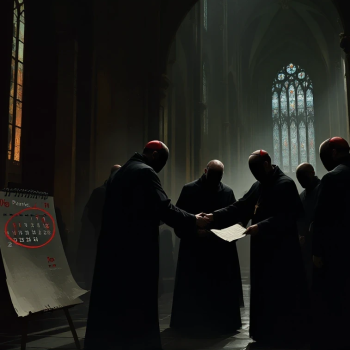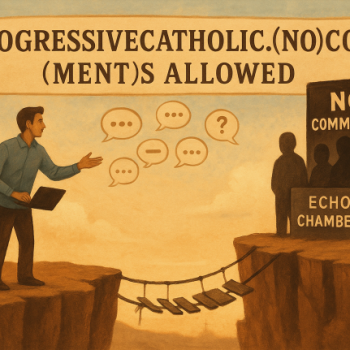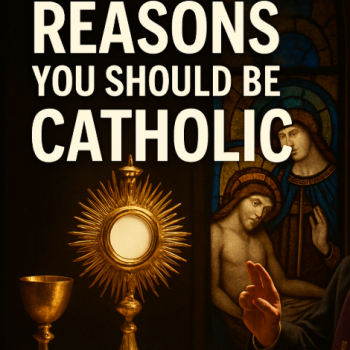A couple of weeks ago, I wrote a piece requesting a civilized and open dialogue with progressive Christians (including Catholics). Of those who replied, sadly only one identified as a progressive Catholic. Not wanting to paint an inaccurate picture, I decided to give dialogue another chance. But in this article my focus is progressive Catholics only. So, here it goes…
What Does the Catholic Life Look Like?
In the previous piece, I asked the Christian life looks like. Here, my focus rests solely on the Catholic life, otherwise understood as the sacramental life. Specifically:
- What role do the sacraments play in the life of progressive Catholics?
- What is the view of sin and judgement to progressive Catholics?
- Can Catholics ignore Church teaching if they feel justified and not put their souls at risk? If so, how?
Please answer these questions in the comment section below. Thanks!
What Authority Does the Church Have Over Your Life?
Moreover, Catholics believe (whether conservative or progressive) that Jesus founded the Catholic Church. Or do I have this wrong? Specifically:
- Does the Church offer only moral suggestions or moral laws?
- What consequences exist for willfully violating the Church’s moral law, if any?
- What hold precedence in your life, the infallible teaching of the Church or your conscience, whether properly formed or not?
Again, please answer these questions in the comment section below. Thanks!
Why the Uncharitable Labels Toward Conservative Catholics?
This one I find the most troubling (and confusing). Conservative Catholic (like myself) seek to live as faithful Catholics. We give deference to the Church in matters of faith and morals. This does not mean we do not fail. Far from it… It means that in our failure we seek the Church and her sacraments for guidance and forgiveness. Furthermore, due to this desire for faithfulness, conservative Catholics get labeled: RadTrads, insertherephobic, fascist, racist, Trumpist, and more. Regarding this issue, my questions are:
- What purpose do such uncharitable labels work towards?
- Are such labels meant to shame and silence conservative Catholics?
- If the conservative Catholic gets labeled due to their faithfulness to Catholic teaching, specifically Catholic moral teaching, should not this label then get placed on the Catholic Church as well?
Progressive Catholics, Us Reason Together
In conclusion, I make a final appeal to progressive Catholics for dialogue. Let’s move passed name calling and come together to understand one another. What do you think?
Summary of Questions:
- What role do the sacraments play in the life of progressive Catholics?
- What is the view of sin and judgement to progressive Catholics?
- Can Catholics ignore Church teaching if they feel justified and not put their souls at risk? If so, how?
- Does the Church offer only moral suggestions or moral laws?
- Do consequences exist for willfully violating the Church’s moral law?
- What hold precedence in your life, the infallible teaching of the Church or your conscience, whether properly formed or not?
- What purpose do such uncharitable labels work towards?
- Are such labels meant to shame and silence conservative Catholics?
- If the conservative Catholic gets labeled due to their faithfulness to Catholic teaching, specifically Catholic moral teaching, should not this label then get placed on the Catholic Church as well?
Inspiration From the Catechism
God, infinitely perfect and blessed in himself, in a plan of sheer goodness freely created man to make him share in his own blessed life. For this reason, at every time and in every place, God draws close to man. He calls man to seek him, to know him, to love him with all his strength. He calls together all men, scattered and divided by sin, into the unity of his family, the Church. To accomplish this, when the fullness of time had come, God sent his Son as Redeemer and Savior. In his Son and through him, he invites men to become, in the Holy Spirit, his adopted children and thus heirs of his blessed life.
Amen!
If you enjoy my writing, please consider donating by clicking here. Thank you!
Read my other writing here.
Please click the link below to join.
Voices of the Faithful in the Synod on Synodality
Please make your voice heard.
I Support Church Teaching in the Synod of Synodality

















